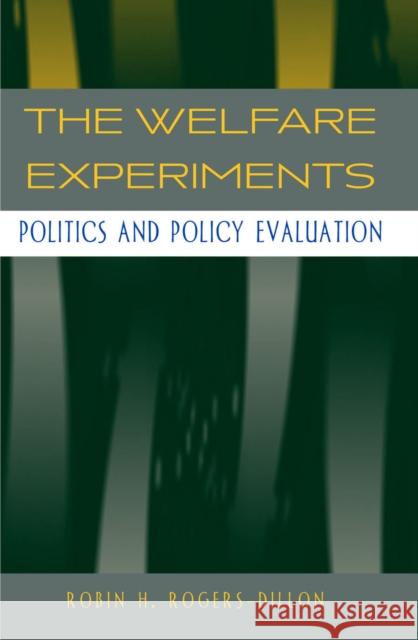The Welfare Experiments: Politics and Policy Evaluation » książka
The Welfare Experiments: Politics and Policy Evaluation
ISBN-13: 9780804747462 / Angielski / Miękka / 2004 / 272 str.
The Welfare Experiments: Politics and Policy Evaluation
ISBN-13: 9780804747462 / Angielski / Miękka / 2004 / 272 str.
(netto: 111,67 VAT: 5%)
Najniższa cena z 30 dni: 116,54
ok. 22 dni roboczych.
Darmowa dostawa!
Welfare experiments conducted at the state level during the 1990s radically restructured the American welfare state and have played a critical--and unexpected--role in the broader policymaking process. Through these experiments, previously unpopular reform ideas, such as welfare time limits, gained wide and enthusiastic support. Ultimately, the institutional legacy of the old welfare system was broken, new ideas took hold, and the welfare experiments generated a new institutional channel in policymaking. In this book, Rogers-Dillon argues that these welfare experiments were not simply scientific experiments, as their supporters frequently contend, but a powerful political tool that created a framework within which few could argue successfully against the welfare policy changes. Legislation proposed in 2002 formalized this channel of policymaking, permitting the executive, as opposed to legislative, branches of federal and state governments to renegotiate social policies--an unprecedented change in American policymaking. This book provides unique insight into how social policy is made in the United States, and how that process is changing.











